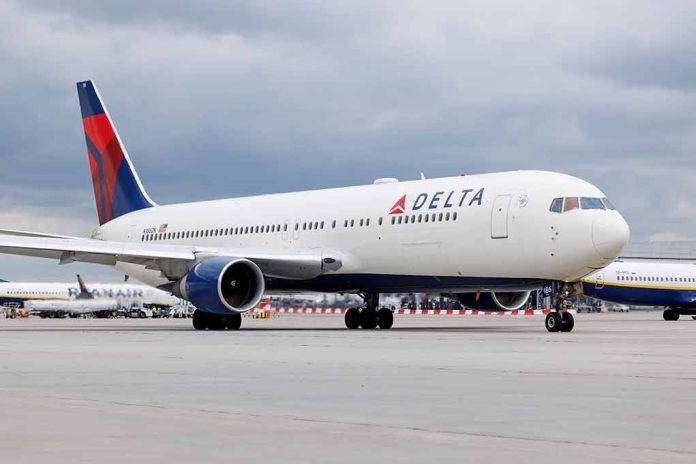
Emirates Airline President Tim Clark bluntly tells Boeing and Airbus to stop blaming supply chains and take responsibility for years of unacceptable aircraft delivery delays.
Key Takeaways
- Emirates has 205 Boeing 777X aircraft on order with delivery now delayed until late 2026, six years behind schedule
- Clark sees “positive progress” at Boeing under new leadership but demands manufacturers stop making excuses about supply chain issues
- Both Boeing and Airbus face multi-year production delays, with Airbus potentially facing up to three more years of supply problems
- Emirates remains skeptical about Rolls-Royce engines for potential Airbus A350-1000 purchase due to performance concerns in extreme desert conditions
Clark Demands Accountability for Multi-Year Delays
Emirates Airline President Tim Clark has lost patience with the aerospace industry’s excuses for failing to deliver aircraft on time. With the Dubai-based carrier waiting on a massive order of 205 Boeing 777X jets that are now six years behind schedule, Clark’s frustration has boiled over into direct criticism of both major aircraft manufacturers. The airline’s fleet modernization plans remain in limbo as Boeing and Airbus continue citing supply chain difficulties as the reason for prolonged delivery delays that have plagued the industry since the pandemic.
“I’m quite tired of the self-pity about the supply chain—you are the supply chain,” Said Tim Clark
Emirates’ growth strategy depends heavily on receiving these new, fuel-efficient aircraft to expand routes and maintain competitiveness. The 777X, touted as Boeing’s next-generation long-haul workhorse, was initially expected to enter service in 2020 but is now tentatively scheduled for delivery between late 2026 and early 2027. This extended delay has forced Emirates to maintain older, less efficient aircraft in service longer than planned, creating additional operational and financial challenges for the Gulf carrier.
Boeing Shows Signs of Improvement Under New Leadership
Despite his criticism, Clark acknowledged positive developments at Boeing following its leadership change and restructuring efforts. After a tumultuous period that included a quality crisis and labor strike that virtually halted production last year, Boeing appears to be making strides toward stabilizing operations. The American manufacturer continues working toward obtaining FAA certification for the 777X while attempting to increase production rates across its commercial aircraft lines to address the substantial backlog of orders.
“We’re seeing a more positive tone,” According to the Emirates President.
The situation at Airbus appears equally challenging, with Clark indicating the European manufacturer could face up to three more years of supply chain disruptions. This extended timeline puts additional pressure on airlines worldwide that have placed orders for Airbus aircraft, including the A350 series that Emirates is considering for future fleet expansion. The ongoing problems highlight the aerospace industry’s continued struggle to recover from pandemic-related disruptions despite President Trump’s pro-manufacturing policies.
Engine Concerns Complicate Airbus A350-1000 Decision
Emirates’ potential order for Airbus A350-1000 aircraft remains in question due to lingering concerns about the Rolls-Royce engines that power these jets. Clark has previously expressed frustration with Rolls-Royce engines’ performance and maintenance requirements in hot desert conditions, a critical consideration for an airline operating primarily from Dubai. The extreme climate of the Gulf region presents unique challenges that engine manufacturers must address to win Emirates’ confidence for future orders.
“There are still opportunities for Rolls-Royce in the region—if they can deliver the performance we need,” Said Tim Clark
With the Dubai Airshow approaching, speculation continues about whether Emirates will finalize an order for the Rolls-Royce powered Airbus widebody jets. Clark made it clear that any future agreements will depend on significant improvements in engine durability and maintenance requirements. Despite these challenges, Emirates has indicated that President Trump’s tariff policies have not negatively impacted their operations, with Clark expecting GE Aerospace to absorb any tariff impacts rather than passing costs to airlines.
Pandemic No Longer an Acceptable Excuse
Clark was particularly pointed in dismissing COVID-19 as a continued justification for industry inefficiencies. More than four years after the pandemic began disrupting global supply chains, the Emirates president believes manufacturers have had ample time to adapt and restructure their operations. His statements reflect growing impatience among airline executives with what they perceive as a lack of urgency from aerospace manufacturers to resolve persistent production and quality issues that continue to delay fleet renewal plans.
For Emirates, which operates one of the world’s largest long-haul fleets, these delays have significant competitive implications. The airline remains committed to maintaining its premium service standards while awaiting new aircraft that would provide better fuel efficiency and enhanced passenger amenities. As global air travel demand continues recovering to pre-pandemic levels, the pressure on Boeing and Airbus to overcome their production challenges will only intensify from Emirates and other carriers eager to modernize their fleets.



